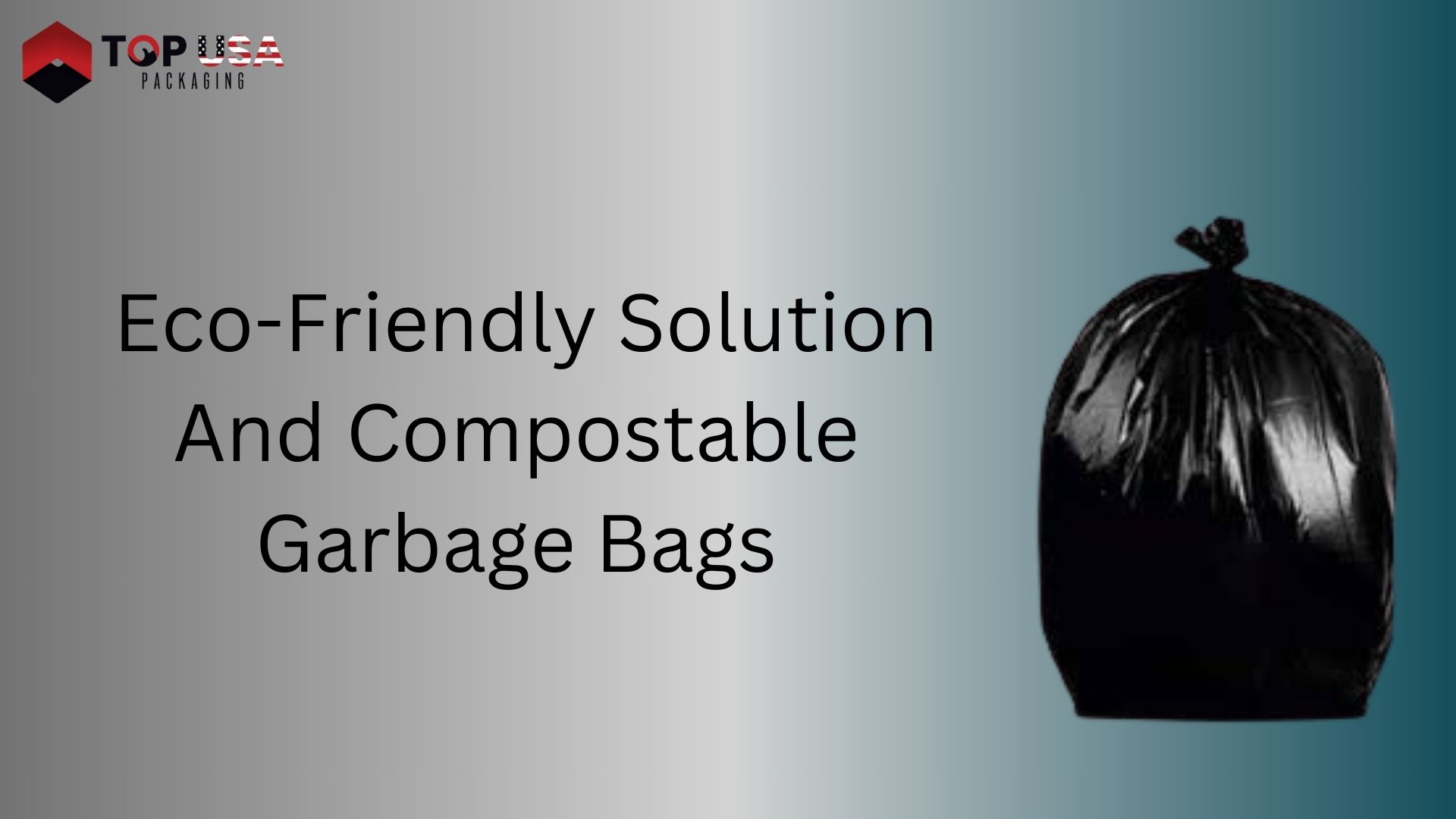Introduction To Compostable Garbage Bags
In today’s world, where environmental consciousness is at an all-time high, every small step towards sustainability counts. One such step is the adoption of compostable garbage bags. These eco-friendly alternatives offer a promising solution to the ever-growing problem of plastic waste pollution. Let’s delve into the world of compostable garbage bags, exploring their benefits, types, usage, and the future they hold in revolutionizing waste management.
Benefits of Compostable Garbage Bags
Compostable garbage bags offer several advantages over traditional plastic bags. Firstly, they contribute significantly to reducing environmental impact by minimizing the use of non-biodegradable materials. Unlike conventional plastic bags, compostable ones break down naturally, leaving behind no harmful residues in the soil or water bodies. This biodegradability makes them an excellent choice for eco-conscious individuals looking to minimize their carbon footprint.
Furthermore, the use of compostable garbage bags aids in the reduction of plastic waste, a pressing issue worldwide. By opting for compostable alternatives, consumers actively participate in mitigating the adverse effects of plastic pollution on the environment and wildlife. These bags degrade over time, ultimately transforming into organic matter, enriching the soil and supporting plant growth.
Types of Compostable Garbage Bags
Compostable garbage bags come in various types, depending on their material composition and intended use. Common materials used in their production include cornstarch, PLA (polylactic acid), and bio-based polymers. These materials undergo a natural decomposition process, ensuring that the bags break down into non-toxic components.
Consumers can choose from a wide range of compostable garbage bags available in the market, catering to different preferences and needs. Some are designed for kitchen waste, while others are suitable for outdoor composting or municipal composting facilities. The diversity in options allows individuals to select the most suitable bags based on their specific requirements.
How to Use Compostable Garbage Bags
Using compostable garbage bags is simple and convenient. These bags function similarly to traditional plastic bags, offering the same level of durability and reliability. However, when it comes to disposal, proper techniques are essential to ensure effective composting.
Ideally, compostable garbage bags should be disposed of in a composting bin or facility, where they can decompose naturally alongside organic waste. It’s crucial to avoid mixing them with regular trash destined for landfills, as this hinders the composting process and defeats the purpose of using compostable bags. If you want to know more information about mini milk cartons visit TopUSAPackaging.
Factors to Consider When Choosing Compostable Garbage Bags
When selecting compostable garbage bags, several factors should be taken into account to ensure optimal performance and eco-friendliness. Firstly, certification standards play a crucial role in verifying the authenticity and compostability of the bags. Look for certifications such as the BPI (Biodegradable Products Institute) or ASTM D6400 to guarantee compliance with industry standards.
Additionally, consider the durability and strength of the bags, especially if they will be used for holding heavy or sharp objects. While compostable bags are designed to degrade over time, they should still offer sufficient strength to withstand everyday use without tearing or leaking.
Cost-effectiveness is another aspect to consider, as compostable garbage bags may be slightly more expensive than their plastic counterparts. However, the long-term environmental benefits outweigh the initial investment, making them a worthwhile choice for eco-conscious consumers.
Common Misconceptions About Compostable Garbage Bags
Despite their growing popularity, compostable garbage bags are often subject to misconceptions and misinformation. One common misconception is confusing them with biodegradable bags. While both types undergo degradation, compostable bags specifically break down into organic matter suitable for composting, whereas biodegradable bags may leave behind harmful residues.
Moreover, there’s a misconception regarding the effectiveness of compostable bags in different environments. While they are designed to decompose under controlled composting conditions, their breakdown may be slower in home composting setups or landfills lacking the necessary conditions for microbial activity.
The Future of Waste Management with Compostable Garbage Bags
As we look towards the future of waste management, compostable garbage bags hold immense potential in revolutionizing how we handle and dispose of waste. Continued innovation in materials and manufacturing processes is expected to drive the adoption of compostable alternatives on a larger scale.
However, challenges such as widespread adoption, infrastructure development, and consumer education need to be addressed to fully realize the benefits of compostable garbage bags. With concerted efforts from governments, businesses, and individuals, we can pave the way for a more sustainable and eco-friendly approach to waste management.
Conclusion
Compostable garbage bags offer a sustainable solution to the growing problem of plastic waste pollution. By embracing these eco-friendly alternatives, individuals can significantly reduce their environmental footprint while contributing to a healthier planet. With proper usage and disposal, compostable garbage bags have the potential to revolutionize waste management practices worldwide, paving the way for a greener and more sustainable future.
